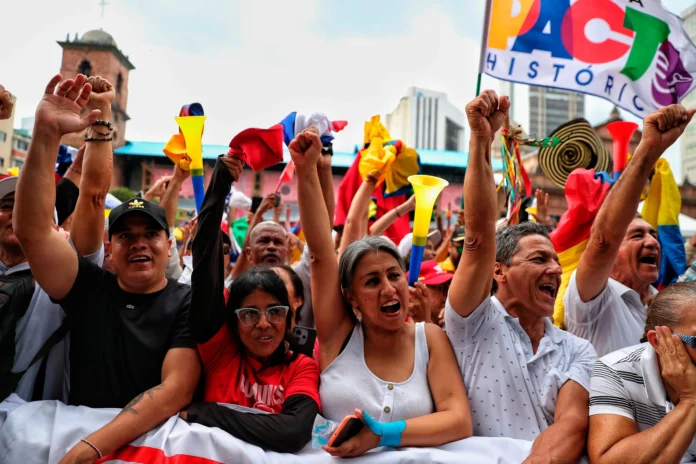I watched the vote unfold on Tuesday night as Colombia Senate approved a major labor reform bill by 57 votes to 31, ending a long standoff between President Gustavo Petro and lawmakers over how to protect workers. The decision comes just days before the June 20 deadline to close the legislative session. In my view, it marks a clear shift in working rules after months of heated debate.
Colombia Labor Reform Details and Impact
I see the new law setting an eight‑hour day limit for daytime work and boosting pay for shifts that begin at 7 p.m. Pay for weekends and holidays will rise in steps through July 2027. For platform workers, like those who deliver food via Rappi, the bill will force them to join social security and drop exclusivity clauses. Apps must now let a real person review their algorithms before deciding who works and when.
Labor Minister Antonio Sanguino hailed the vote as “a win for progress” and said the government crafted fair rules “article by article.” In my view, the boost in pay and new social benefits will help many families. But business groups warn that costs could jump by as much as 35 percent and say they may have to cut jobs or raise prices to cover new obligations.
Colombia Labor Reform Political Tensions
The vote follows a rocky path. Congress twice rejected the plan—in March and again in May. Then President Petro pushed for a 12‑question referendum on labor law changes. When senators struck down the referendum proposal 49 to 47, Petro issued a decree on June 11 saying he would hold a public vote in August anyway.
I think that decree crossed a line for many. Opposition leaders cried foul and called it an attack on the constitution. Senate President Efraín Cepeda even asked the U.N. human rights office to step in, calling the decree “a serious breach of our legal order.” Petro warned his ministers that refusing to back the decree would cost them their jobs, arguing that the president must stand with the people.
The spat laid bare deep divides about how much power the president may use to force through his agenda. I believe the clash tested Colombia’s institutions and showed how rapidly tensions can rise when rules get pushed to the brink.
Colombia Labor Reform Next Steps and Uncertainty
Now both chambers must work out any differences in their versions of the bill, then send the final text for Presidential approval. Colombia’s election body said it will pause work on any referendum until Colombia’s top court rules on whether the decree was legal.
Petro wrote on X that he will keep pushing for a public vote until the final law passes. He even threatened to call a constituent assembly to rewrite parts of the constitution if courts block his plan.
I think the real test will be on the ground. With 56 percent of workers still in informal jobs, many will welcome the chance to join a formal economy. Yet critics warn that higher costs will drive more firms to hire off the books. In my view, how businesses and workers adjust will decide if this reform truly helps Colombia’s labor force or adds new strains.
Sources: WTOP News, Colombia One

